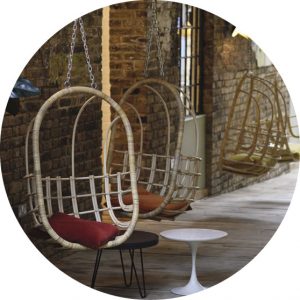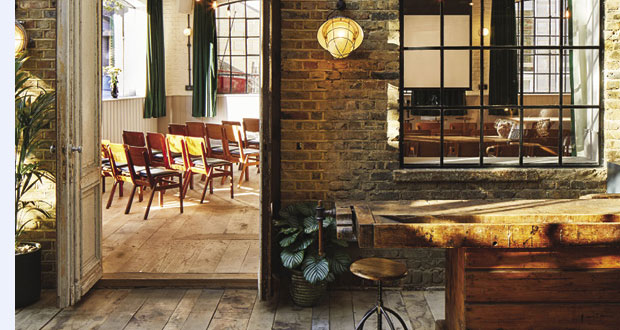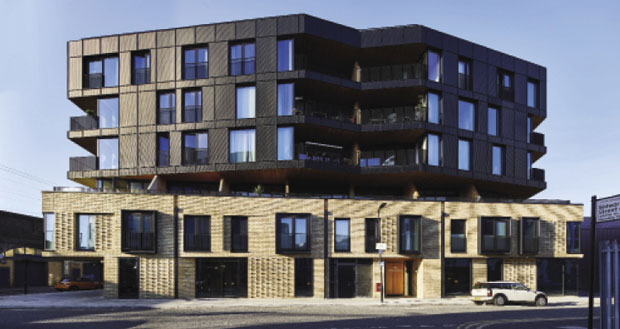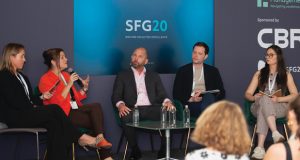OCCUPANCY LIST
The list of companies which utilise the space is eclectic; and includes a small number from the banking industry, a number of media companies and social enterprises, a vegan baker, a bread station, a company which provides online learning for children, plus creatives such as architects and graphic designers.
Says Warner: “We were never going to be just a space for tech or creatives, everyone is welcome. We care about what sparks your imagination and we know by moving around and working with other disciplines is stimulating. We should all be interested in other people’s industries because if you’re not, you’re missing out on a huge opportunity.
“This idea has shaped the way we operate, which is why 50 per cent of our space is common space, which is quite a big area for a flexi office.”
Aside from the window cleaner who is an ex Michelin chef and the cleaner who run their company from the Fisheries, facilities are provided exclusively in house.
“If you’re taking on big contractors you’re essentially paying them to pay a sub-contractor to do the work” argues Warner. “Our front desk is our in-house team, as that is the nerve centre of our business. We’re in hospitality so we know we’re not needed at the front desk all time, so we’ve people on a rota to walk the building and pick up cups.
 “Those other things are easy. Of course, the place should be clean, the windows should be clean, that’s obvious. Part of our job is to talk to members, say hello, walk around and engage with them if they’re free to talk. The things that matter are the bits you don’t see and take place.”
“Those other things are easy. Of course, the place should be clean, the windows should be clean, that’s obvious. Part of our job is to talk to members, say hello, walk around and engage with them if they’re free to talk. The things that matter are the bits you don’t see and take place.”
COMMUNITY FEEL
The other key element for the Fisheries is creating a sense of community. The Fisheries hosts weekly Wednesday lunches, free to all members as a way to socialise and get involved. Monthly members drinks in the event space are organised to help people get to know others and help encourage cross-creativity. Other members are encouraged to use the Green Room to run their own events, and if it’s for a good cause it comes free. This sense of community extends to the wider Hackney environs.
Says Warner: “We don’t have a café on site which was deliberate, as we wanted to support local business and acknowledge we are a community and part of a larger community.
“It sounds trite but mental health has always been high on my agenda so the wellness aspect at work is important. Many organisations talk a good game but I believe it’s about impregnating this into your footprint so it becomes routine.
“For instance, we have a personal trainer, who holds two sessions a week and we’ve got 25 people going to each session. We try and programme it into their routine so they are encouraged to get away from their desk. We also run regular yoga sessions.”
Warner’s background in hospitality shines through this project, as he’s begun with the hospitality side and extended it to the knowledge worker, not the other way around. He is happy to bring his winning ingredients to other flexible spaces.
“We’ve been talking to lots of people and there are many routes we can pursue. However, the way in which we expand is tricky, as some get it some still don’t, as there is a strong belief by developers and landlords that these massive office blocks will continue.
“My view is that there will be an element of that but things were changing anyway. Our expansion model is those companies who are discovering they need something like us, because we’re better at running a flexible working space which delights users. That is because the workplace is now essentially about good hospitality. If you want them to come to work then you better damn well ensure they want to come to work.”






